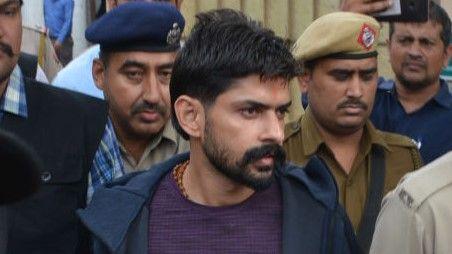Lawrence Bishnoi, a notorious gangster from Punjab, India, has been incarcerated since 2015 but continues to exert significant influence over organized crime both domestically and internationally. Bishnoi has recently come under scrutiny from Canadian authorities, who allege that the Indian government is leveraging organized crime groups like his to target pro-Khalistan leaders advocating for a separate Sikh homeland. These claims emerged in a highly publicized press conference shortly after diplomatic tensions escalated between Canada and India due to the assassination of a Sikh separatist on Canadian soil. The Indian government has dismissed these allegations as politically motivated attacks by Canadian Prime Minister Justin Trudeau. Despite being imprisoned in Gujarat, far from his home state of Punjab, Bishnoi maintains a notorious reputation and alleged control over criminal activities that span multiple states in India.
The criminal activities associated with Bishnoi’s gang are alarming and diverse, ranging from extortion and drug trafficking to targeted killings. Notably, Bishnoi has been named the prime suspect in the high-profile murder of Punjabi singer Sidhu Moose Wala, gunned down in October 2022. Bishnoi’s notoriety escalated in 2018 when he threatened Bollywood star Salman Khan over poaching accusations, showcasing his brazen nature even from behind bars. Furthermore, Indian authorities have linked Bishnoi’s gang to the recent murder of Baba Siddique, a notable politician in Mumbai, suggesting that Bishnoi’s influence extends even after his imprisonment. The police believe that despite his incarceration, Bishnoi continues to orchestrate criminal enterprises through a network of about 700 members, with his associate Goldy Brar managing operations from Canada.
Bishnoi was born into affluence in Punjab, raised by a wealthy family with roots in local law enforcement. His privileged upbringing propelled him into a life where he was able to engage in student politics, where he attracted followers due to his affluence and charisma. However, after facing political defeat, he transitioned into the world of crime, mingling with criminals and getting involved in violent incidents. Punjab’s gangs, including Bishnoi’s, have thrived amid a cash-driven economy fueled by drug dealing, real estate, and illegal liquor sales, creating a volatile ecosystem where crime and Punjabi pop culture intertwine. This blend of fame and fortune in the local society feeds the aspirations of young recruits looking for quick money and recognition, reshaping legitimate avenues towards criminal activities.
Despite being incarcerated, Bishnoi has managed to conduct his criminal enterprises, raising questions about the operational capabilities of gangs when their leaders are behind bars. This dynamic has sparked debates about the potential political protection or connections that centralized criminal figures like Bishnoi could have. Reports indicate that Bishnoi has been involved in orchestrating his gang’s operations remotely, submitting reports and surrendering himself to the media spotlight from prison, a development that has raised concerns about prison security and the influence of organized crime within the penal system. It appears that Bishnoi’s power is not just symbolic; he has effective control over logistics, media access, and the continuation of his criminal ventures under multiple jurisdictions.
Bishnoi’s rise to infamy also highlights the interplay between traditional power structures and contemporary criminal enterprises. In a culture where notoriety often supersedes morality, many young individuals are lured to crime in their pursuit of fame and influence. The prevalence of social media has amplified this phenomenon, as gangsters like Bishnoi showcase their lavish lifestyles, further enticing youth to join crime syndicates. With the police dismantling hundreds of gangs over recent years, the situation remains precarious, reflecting a broader societal issue surrounding crime and its glorification in popular culture. Punjab’s escalating gang violence and drug-related crimes speak to systemic failures in governance and law enforcement, as gangsters seek not just financial gain but cultural status within their communities.
The intersection of crime, politics, and community identity positions Bishnoi as a contentious figure in both India and abroad. His alleged use in targeted operations against political adversaries, particularly in the context of Canadian-Sikh relations, underscores the geopolitical dimensions of local gang factions. The alleged manipulation of criminal organizations by state entities raises profound questions about accountability, sovereignty, and the nature of international relations amid rising diaspora tensions. As Canada and India grapple with these crises, the figure of Lawrence Bishnoi looms large, embodying the complex layers of identity, ambition, and conflict that characterize contemporary issues facing both countries.

